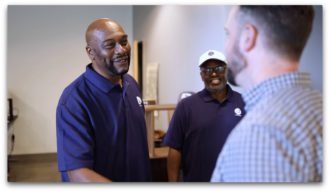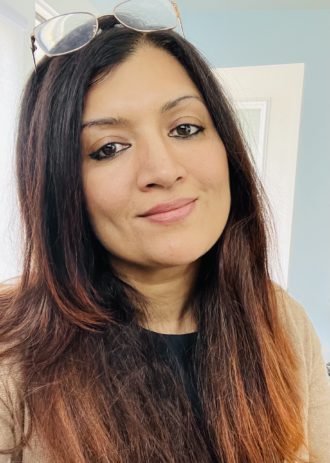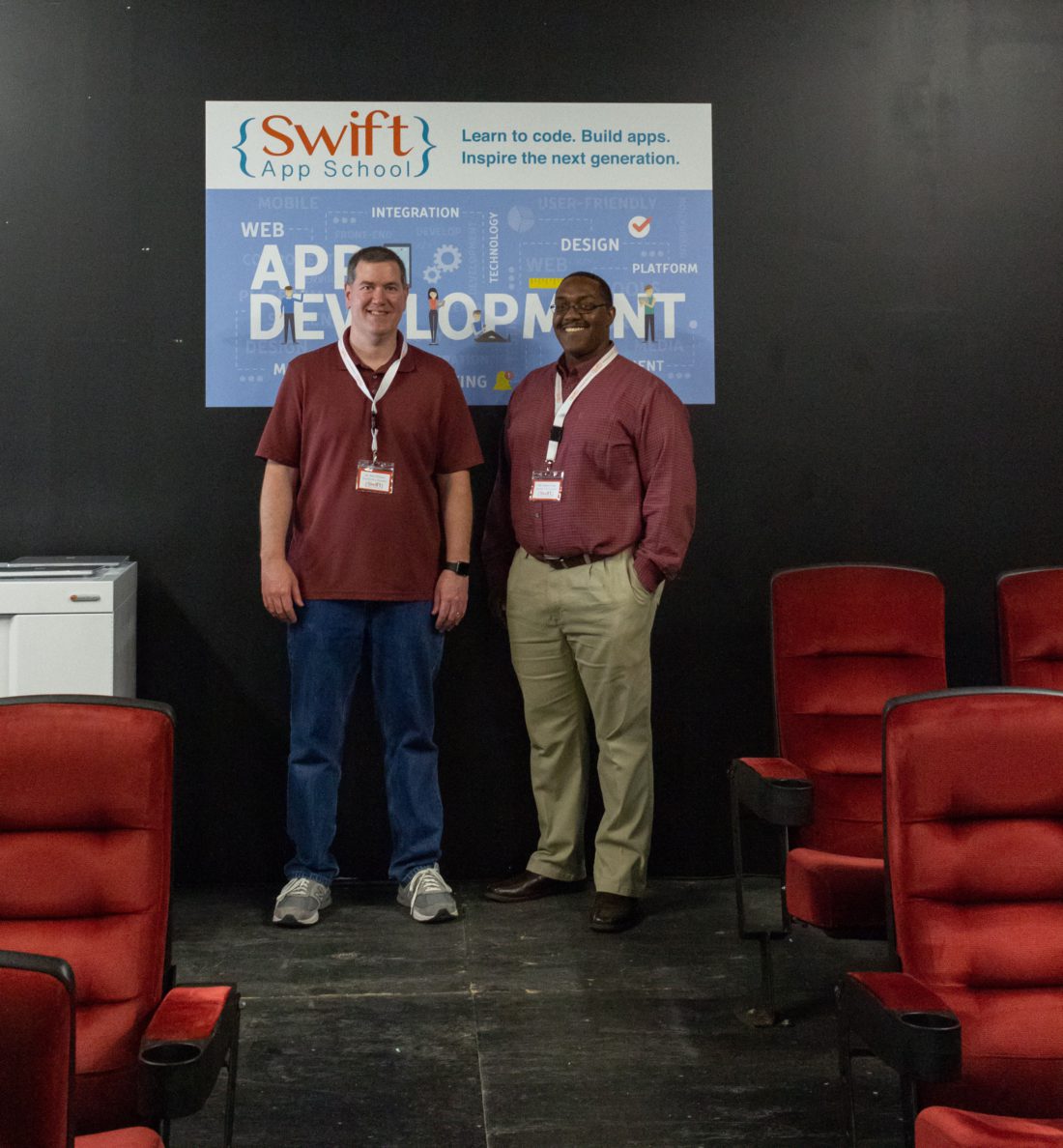By Courtney Kelly
Asheville’s technology sector is a relatively small part of the region’s economy. As of May 2021, the last period for which U.S. Bureau of Labor Statistic data is available, just 1.5% of those employed in the metropolitan area worked in “computer and mathematical operations,” compared with more than 11% of workers in the leading category of “food preparation and serving-related occupations.”
But just like restaurant proprietors, local tech entrepreneurs take pride in their Asheville-inflected approach to business. The firms flourishing here combine a devotion to quality with a sense of social responsibility, aiming to make up for their modest proportions in societal impact.
Success in human terms
One way Western North Carolina tech firms achieve this goal is by prioritizing human measurements of success. Soomo Learning, an Asheville-based education technology company, gauges performance in terms of student achievement. It creates customized, interactive web texts for postsecondary schools that “cost less and work better than a traditional textbook,” as CEO Mary Jane Lindrum puts it.
The company works with large online schools like Southern New Hampshire University, Western Governors University and Strayer University, Lindrum explains, to improve the effectiveness of current teaching methods. “We’ve enabled these schools to try new approaches to curriculum delivery and increase their agility and responsiveness to students,” she says. “As a result, more students are succeeding in their college courses.”

For Matthew Bacoate, founder of Asheville Community Enterprises, the value of an endeavor doesn’t have to be strictly quantifiable. His app, SafePlusMore, enables individuals in crisis to immediately and anonymously get the professional help they need. Having just been soft launched, the app has already saved one person’s life.
“That’s a human being that’s not dead today that’s still with their family. I don’t care how much I put into this app; that’s worth everything to me,” says Bacoate.
Charles Long and Bob Williams, co-founders of the Swift App School, measure their company’s success in terms of youth empowerment. Based in downtown Asheville’s Hatch Innovation Hub building, their summer camps teach middle and high school students how to build fully functioning apps from start to finish.
In addition to equipping young people with invaluable coding and design skills, the duo offers graduates opportunities for paid work as teaching assistants or content creators for their camp. “To me, that’s the most rewarding piece: to see our students become teachers. We currently have two students who are building games for us, and I am in awe of what they’re doing,” Williams says.
Tackling social issues
These and other entrepreneurs in Asheville say they are drawn to the field not because of the profits technology development can offer but because of the social problems it can solve. The Swift App School founders know that underserved student populations in WNC lack opportunity for advancement, and they built their program to fix that.
“My parents were living paycheck to paycheck,” recalls Long. “They were barely making any money, so they wouldn’t have been able to sign me up for programs. Without one of my math teachers taking it upon himself to show me how to code, I wouldn’t be where I am today. Students in underserved communities just need someone to mentor them, to show them what’s possible.”

Lindrum and her team at Soomo share a devotion to making learning accessible for more individuals. “That’s why we don’t aim for a reading level that’s above 12th grade in our intro courses,” she says. “We don’t want to prevent students from engaging with content that could position them for success down the road because it’s too hard to read. We want our platform to help level the playing field.”
While the Swift App School and Soomo Learning confront education disparities, another Asheville-based tech company founder, Harpreet Cheema, tackles issues in health care. During her 15-year tenure working in health care tech, she says she learned a great deal about who health care systems fail and why.
“The pandemic has exacerbated the already glaring need for a range of centralized, affordable wellness services, especially those addressing mental health,” she explains. This problem, especially as it affects communities of color, is what prompted Cheema to build her online marketplace, HealthBook ME.
HealthBook ME streamlines individuals’ access to a broad spectrum of providers, including therapists, nutritionists, yoga and meditation instructors, and women’s health specialists. At the same time that it enables users to connect with professionals that suit their budgets and needs, Cheema’s platform offers providers an all-in-one toolkit for reaching potential clients, booking appointments and holding virtual/telehealth sessions. By allowing health and wellness professionals to use built-in tools for a nominal subscription fee, she says, HealthBookME lowers the overhead that contributes to healthcare’s expense.
Like Cheema, Bacoate built his SafePlusMore platform to address the barriers preventing individuals from getting the mental health assistance they need. “It’s not that the services available to help people with substance addictions or other mental health challenges don’t work; it’s that they’re not reaching the people they’re intended to support,” says Bacoate, who’s worked in community reentry and substance abuse services for 25 years.
“The one thing I know about substance abuse, mental illness and recovery is that everyone has a moment of clarity at some point,” he continues. “The problem is that there’s usually no one around when that moment of clarity happens.”
Determined to smooth the connection between individuals and the resources they need, Bacoate turned to software. Not only are mobile devices constant companions — one 2019 survey found the average American checked their phone 96 times per day — but they’re also nonjudgemental ones.
The fact that SafePlusMore users can access assistance anonymously is critical to the app’s functionality, Bacoate says. As he’s seen firsthand, many people in crisis don’t reach out for help because admitting they have substance abuse issues or mental health challenges is too risky. In some cases, it could cost them their support system; in others, it could cost them their jobs.
“I want people to know that with SafePlusMore, you have a friend in the palm of your hand. No matter what you’re going through, the person on the other end of the app won’t know you, but they’re going to be someone you can talk to,” he explains. “You get the support you need anonymously, and that will allow you to become more comfortable with the bigger picture of getting help.”
Promoting inclusion
Promoting equity, diversity and inclusion is a core mission for many local tech firms. Long and Williams, for example, have doubled down on their efforts to teach underserved youths and girls the skills they need to enter an industry long dominated by white men. They’ve raised money so that they can offer camp scholarships to individuals in need, and they’ve partnered with area nonprofits such as My Daddy Taught Me That to expand their community reach.

“It’s not good for just one kind of person to be controlling technology; we want to empower more types of people from more backgrounds to bring their ideas and visions to life,” Williams says. “A lot more young women are interested in our camp now, and last summer, our camp was much more diverse than it’s ever been.”
And part of the reason Cheema created HealthBook ME, she says, is to provide individuals of color with access to therapists and counselors they can relate to. “If I were to tell a counselor born in the States that I grew up in India in a joint family with 10 other kids, they might not be able to fully understand my upbringing,” she explains. “Likewise, the discrimination that I’ve experienced as a person of color is hard to explain to a therapist who has not also experienced it firsthand.”
This is why Cheema has focused on making her platform both comprehensive and affordable for providers: The greater the number and variety of professionals making their services available on HealthBook ME, she suggests, the better the chances platform users can find a provider they feel comfortable working with. “This is an attempt to democratize health and wellness,” she says.




Before you comment
The comments section is here to provide a platform for civil dialogue on the issues we face together as a local community. Xpress is committed to offering this platform for all voices, but when the tone of the discussion gets nasty or strays off topic, we believe many people choose not to participate. Xpress editors are determined to moderate comments to ensure a constructive interchange is maintained. All comments judged not to be in keeping with the spirit of civil discourse will be removed and repeat violators will be banned. See here for our terms of service. Thank you for being part of this effort to promote respectful discussion.